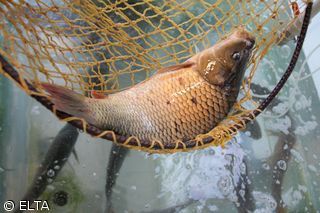For several years the position of Polish exporters on the markets of the former Commonwealth of Independent States has been clearly weakening
Published:
5 May 2003 y., Monday
In order to spur on trade, presentations of Polish exporters are gaining popularity. One such presentation is the Polish National Exhibition in St. Petersburg.
Geographic proximity, relatively small competition from local manufacturers who are not capable of satisfying the growing demand for modern products and, contrary to common belief, the increasingly wealthy and demanding customer, are the advantages of the "eastern market." Why then does trade with the countries of the Commonwealth of Independent States (CIS) constitute as little as 7.1 percent of the global value of Polish export?
The position of Polish companies is weakened by competition from the Western businesses that are perfectly aware of the perspectives which an active and strategically planned entry into Eastern markets can accomplish. Entrepreneurs from Germany, France and the United States, supported by the appropriate funds, first promote and then successfully sell their products in Russia and Ukraine or make direct investments there.
The decrease in the amount of Polish agriculture and food products exported to Eastern markets has stemmed from the fact that big international concerns such as Nestlé, Danone or Unilever directly entered this strategic area. However, the issue of Western competition is only a part of the answer to this question and the possibility of development for Polish exporters on the markets in the former Soviet Union.
One of the most serious difficulties Polish companies encounter is a considerable risk connected with signing commercial contacts with partners from the East who frequently appear to be insolvent and do not honor their contracts. According to Robert Stawski from the Promotion Chamber of the Polish Chamber of Commerce, businesspeople from Russia frequently do not understand the term "advance payment" and sometimes want to pay for the products only after they sell them. For obvious reasons, these terms are hard to accept for Polish manufacturers, which are mostly small and medium-sized companies. The state does not guarantee any protection for companies against situations in which partners from Russia, Belarus or Ukraine do not fulfill the terms of a commercial contract.
Šaltinis:
warsawvoice.pl
Copying, publishing, announcing any information from the News.lt portal without written permission of News.lt editorial office is prohibited.
The most popular articles
 The European Commission has decided to grant an extension of the deadline for the divestment of Fortis' corporate banking business, consisting of Hollandsche Bank Unie N.V. (HBU), two corporate client departments, 13 "Advieskantoren" and ABN AMRO's Dutch factoring activities to Deutsche Bank.
more »
The European Commission has decided to grant an extension of the deadline for the divestment of Fortis' corporate banking business, consisting of Hollandsche Bank Unie N.V. (HBU), two corporate client departments, 13 "Advieskantoren" and ABN AMRO's Dutch factoring activities to Deutsche Bank.
more »
 MEPs will vote on an emergency plan to help the crisis-stricken sector dairy sector on Thursday after the Agriculture Committee approved the Commission's proposal on Monday evening in Strasbourg.
more »
MEPs will vote on an emergency plan to help the crisis-stricken sector dairy sector on Thursday after the Agriculture Committee approved the Commission's proposal on Monday evening in Strasbourg.
more »
 The EBRD is boosting competition in the Montenegrin retail sector with a loan to expand the supermarket network of one of the leading retailers in the country.
more »
The EBRD is boosting competition in the Montenegrin retail sector with a loan to expand the supermarket network of one of the leading retailers in the country.
more »
 Redmond, Wash. — Oct. 16, 2009— On Oct. 19, Microsoft CEO Steve Ballmer heads to the sold-out Microsoft sharepoint Conference in Las Vegas where he will address more than 7,000 sharepoint customers, partners and developers.
more »
Redmond, Wash. — Oct. 16, 2009— On Oct. 19, Microsoft CEO Steve Ballmer heads to the sold-out Microsoft sharepoint Conference in Las Vegas where he will address more than 7,000 sharepoint customers, partners and developers.
more »
 Proposals tabled for collaboration on sea surveillance, bigger EU role in global maritime affairs and sustainable fishing.
more »
Proposals tabled for collaboration on sea surveillance, bigger EU role in global maritime affairs and sustainable fishing.
more »
 $50 million financing package for agricultural commodities operator.
more »
$50 million financing package for agricultural commodities operator.
more »
 Seeking to increase sheet-metal production volumes, Stansefabrikken decided to move all company’s production from Lillesand (Norway) to Stansefabrikken’s successfully operating factories in Lithuania.
more »
Seeking to increase sheet-metal production volumes, Stansefabrikken decided to move all company’s production from Lillesand (Norway) to Stansefabrikken’s successfully operating factories in Lithuania.
more »
 The European Economic and Social Committee (EESC) and the European Commission Representation in Finland jointly organise a conference in Helsinki on 22 and 23 October on "The Baltic Sea Region: the best place to work and do business".
more »
The European Economic and Social Committee (EESC) and the European Commission Representation in Finland jointly organise a conference in Helsinki on 22 and 23 October on "The Baltic Sea Region: the best place to work and do business".
more »
 Why did economy rise drastically turn into painful decline and what price will every of us have to pay for that?
more »
Why did economy rise drastically turn into painful decline and what price will every of us have to pay for that?
more »
 The economies of central and eastern Europe are expected to contract by an average of 6.3 per cent in 2009 following steep output declines in the first half of the year.
more »
The economies of central and eastern Europe are expected to contract by an average of 6.3 per cent in 2009 following steep output declines in the first half of the year.
more »